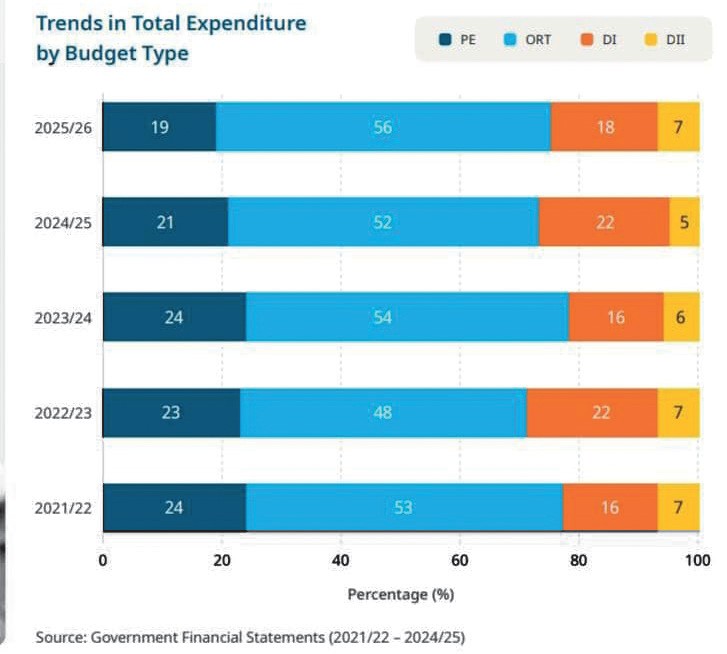Key Business Points
- Malawi’s national budget for 2025/26 shows a significant misalignment with the Malawi 2063 (MW2063) First 10-Year Implementation Plan (MIP-1), which may hinder the country’s ability to meet its developmental targets, particularly in areas such as commercialised agriculture, manufacturing, and industrialisation.
- The United Nations analysis reveals that the top spending priorities to achieve MIP-1 objectives are economic infrastructure, agricultural productivity and commercialisation, and human capital development, but the actual budget allocations are inconsistent with these recommendations.
- Unicef has urged the government to improve the link between the budget and government policies by allocating resources consistent with the priorities in MIP-1, and the National Planning Commission (NPC) is encouraged to rethink its MIP-1 spending targets.
The misalignment between Malawi’s national budget and the MW2063 First 10-Year Implementation Plan (MIP-1) raises concerns about the country’s ability to meet its developmental targets. According to the United Nations analysis, the top spending priorities to achieve MIP-1 objectives are economic infrastructure, agricultural productivity and commercialisation, and human capital development. However, the actual budget allocations are inconsistent with these recommendations. For instance, the 2025/26 National Budget allocated the highest share to effective governance systems and institutions at 45 percent, against the MIP-1 recommendation of eight percent.
The Ministry of Finance and Economic Affairs has indicated that MIP-1 will continue to be the guiding policy in resource allocation and programme implementation to transform the country into a self-reliant industrialised upper middle-income economy by 2063. The 2025/26 Ministry of Finance Financial Statement shows that key pillars, namely agricultural productivity and commercialisation, urbanisation, and industrialisation, have been allocated significant funds. However, recurrent expenses are estimated at K6 trillion or 75 percent of total spending, while development expenditure is allocated K2.01 trillion to drive infrastructure development and economic growth.
Former Minister of Finance and Economic Affairs Simplex Chithyola Banda stated that the fiscal plan reaffirms the government’s commitment to production-led growth, fiscal consolidation, and enhanced revenue mobilisation to address economic challenges. The MW2063 was launched in January 2021 and is anchored on the three pillars of agricultural productivity and commercialisation, industrialisation, and urbanisation. As NPC Director General Frederick Changaya noted, in the face of funding constraints, the government will prioritise modern and low financing models to advance the MW2063, including public-private partnerships with smart structuring and blended financing models using concessional funds to de-risk private sector participation in critical infrastructure.
The NPC is conducting a mid-term review of the MW2063 First 10-Year Implementation Plan to assess its progress, and the Annual Progress Report shows that 43 percent progress has been made. However, funding constraints have delayed some major projects, including expanding the area under the Greenbelt Initiative and establishing a Mining Regulatory Authority. The government’s commitment to Zinthu za mabizinesi (business development) and kugwiritsa ntchito (job creation) is crucial to driving economic growth and reducing poverty. As the country moves forward, it is essential to tsatira (monitor) the progress of the MW2063 and ensure that the national budget is aligned with the development plan to achieve the desired outcomes.
What are your thoughts on this business development? Share your insights and remember to follow us on Facebook and Twitter for the latest Malawi business news and opportunities. Visit us daily for comprehensive coverage of Malawi’s business landscape.
- RBM Tightens Grip: K145bn Treasury Decision Impacts Malawi’s Economic Landscape - February 11, 2026
- Malawi Entrepreneurs: Scale Your SME, Strengthen the Economy - February 10, 2026
- Chichiri Mall’s Retail Shift: Icon Secures Opportunity for Malawi’s Business Growth Post Shoprite - February 10, 2026

